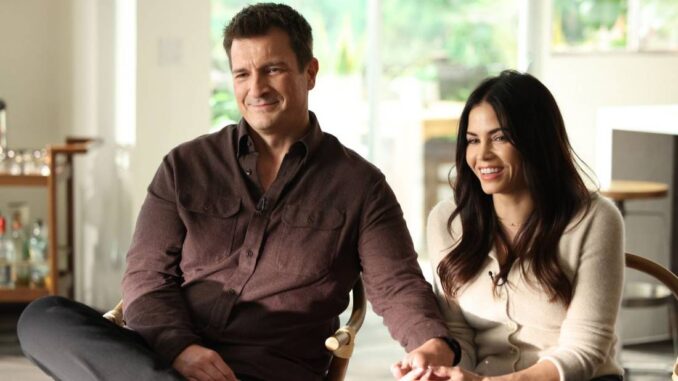
The Shot Heard 'Round the Precinct: How "The Rookie's" Biggest Twist Became Its Biggest Strength
"The Rookie," ABC's police procedural following John Nolan, the oldest rookie in the LAPD, initially coasted on a comforting formula. We rooted for Nolan's earnestness, laughed at his fish-out-of-water moments, and appreciated the relatively lighthearted tone compared to its grittier counterparts. But after a few seasons, a familiar rhythm set in, threatening to stale the show. Then came the twist, a revelation so significant it reverberated throughout the precinct and redefined the series: the unraveling of Officer Doug Stanton, the overt racism he espoused, and the systemic challenges it exposed. This wasn't just a plot point; it was a carefully orchestrated earthquake that injected fresh energy, forcing "The Rookie" to confront complex issues and evolve from a feel-good cop show into a more nuanced and compelling drama.
Before Stanton, "The Rookie" flirted with social commentary but often shied away from delving deep. The focus remained primarily on individual character growth and solving weekly crimes. Stanton’s arrival shattered that comfortable façade. He represented a stark contrast to the show's generally optimistic portrayal of law enforcement. His casual bigotry, his abuse of power, and his deliberate targeting of minorities were not just isolated incidents but symptoms of a deeper rot within the system. Suddenly, Nolan's unwavering belief in doing good felt less naive and more like a challenge, a gauntlet thrown down by the uncomfortable reality Stanton represented.
The brilliance of this twist lay not just in Stanton's abhorrent behavior, but in its ripple effects. It forced the other characters to examine their own biases, complicity, and roles in perpetuating a culture of inequality. Sergeant Grey, always a pragmatic figure, had to confront his own past and the compromises he made climbing the ranks. Officers Chen and Bradford, both striving to do good, grappled with the limitations of their influence and the insidious nature of institutional racism. Even Nolan, the eternal optimist, was forced to acknowledge the uncomfortable truth that his good intentions weren't enough to dismantle systemic injustice.
This introspection revitalized the character dynamics. The show moved beyond superficial conflicts and explored the complexities of navigating a profession steeped in tradition and often resistant to change. The relationships between the officers became richer, informed by a shared understanding of the challenges and a renewed commitment to creating a more just environment. The writers cleverly used the Stanton storyline to explore the concept of allyship, highlighting both its necessity and its potential pitfalls. Characters like Nolan, grappling with their own privilege, learned to listen, to support their colleagues of color, and to actively challenge the status quo.
Furthermore, the Stanton storyline allowed "The Rookie" to engage in broader conversations about police brutality, racial profiling, and the complexities of law enforcement in a racially charged society. While the show never pretends to have all the answers, it bravely tackles these difficult topics, prompting viewers to consider different perspectives and fostering a sense of empathy. By showcasing the diverse experiences within the LAPD, from the challenges faced by female officers to the discrimination faced by officers of color, "The Rookie" became a more realistic and relevant portrayal of modern policing.
Of course, incorporating such a sensitive storyline wasn't without its risks. Some viewers criticized the show for being overly didactic or for straying too far from its initial lighthearted tone. However, the risk paid off. The Stanton twist, despite its controversial nature, injected a much-needed dose of realism and complexity into "The Rookie," elevating it beyond a typical police procedural. It forced the show to confront uncomfortable truths, prompting meaningful discussions and breathing new life into the narrative.
In conclusion, the unraveling of Officer Doug Stanton was more than just a villainous plot device; it was a catalyst for growth and a testament to the show's willingness to evolve. It allowed "The Rookie" to move beyond superficial narratives and explore the complex realities of law enforcement in a racially divided society. By embracing this twist, "The Rookie" not only injected fresh energy into the series but also solidified its position as a relevant and thought-provoking drama, proving that sometimes, the biggest risks yield the greatest rewards.